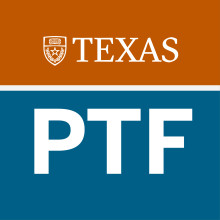Individual Fellow Initiatives

Does Increasing Course Depth While Reducing Breadth Improve Learning in College Students?
Student-centered learning strategies have been effectively used to increase academic performance and learning in students. Educators have hypothesized that course content reduction can also improve student learning. However, support for this idea is lacking. In the present project, I am planning to assess whether a content reduction strategy increases the academic performance of upper-division stem students at the University of Texas-Austin.

Building Rigorously Compassionate Syllabi: Fostering Individual Accountability and Community Care
Our project seeks to revitalize the syllabus document as a tool of inclusion. We are interested in making visible the “hidden curriculum” with which students often struggle. The syllabus language, grading and attendance policies, communication and assignment fulfillment methods, course calendar flexibility, course material formats – these can all contribute to developing personal accountability and investment in community.

Offering Real-World Opportunities for Students Enrolled in Statistics and Data Science Undergraduate Research
The primary goal of this community-based service project is to provide experiential learning opportunities for undergraduates interested in statistics and data sciences while supporting the broader Austin-area community. Coordinating with local organizations, students enrolled in some of our SDS courses are gaining hands-on experience in data analysis while exploring authentic contexts. This innovative and collaborative effort provides a community-based model that allows students and local organizations to co-develop and answer real-world research questions.

Digital Research Apprenticeship: Projects For Intersectional Justice
Research and scholarship in Digital Humanities applies technology to humanities questions and subjects technology

Internship in the Media Industries
Internships have increasingly become a critical step in the college-to-career transition in the media industries and beyond.

Towards an Anti-Racist Climate in Nursing
(Project completed 2021) Systems of oppression gain their power from silence. Faculty in the School of Nursing and across the country are not always comfortable engaging in conversations about race and racism, but these discussions are necessary in order to address the disproportionately poor health outcomes experienced by BIPOC. In response to student and faculty concerns, this project seeks to move our school towards an antiracist climate by targeting multiple layers.

University of Texas Marketing Projects
Marketing is inherently an applied science and, as a result, students learn the most when they can see marketing theories, constructs, and models in action. Marketing is at the intersection of so many academic disciplines—economics, statistics, psychology, sociology, organizational theory and decision science; and to see the way in which each of these disciplines influences marketing decisions requires the real-world dynamics of marketing-decision-making in a dynamic real-world context.

Online Drivers Exercise
Since my first semester at UT (Fall 2011) I’ve taught about 10,000 students across all colleges. From this immense amount of student interaction, I’ve come to believe that many of our students lack the tools and techniques to define their own personal path to success and are not confident in how to best make decisions about their future. As a result of this, I believe many students are seeking what they see as a “safe path” (e.g.

Teaching Patient Safety at the Bedside
Creating a culture of patient safety in teaching hospitals results in safer care delivery. The many demands of the current clinical learning environment make it challenging to routinely and effectively include bedside teaching and role-modeling of patient safety. We used a “positive deviance” model, which has been applied in various settings to help change cultural practices, to identify clinical faculty who model and teach patient safety principles during direct patient care.

